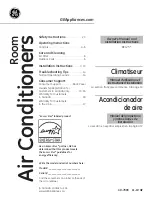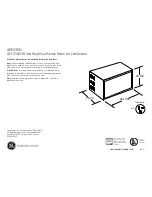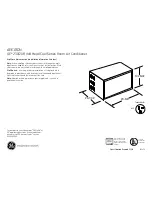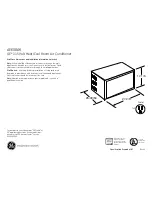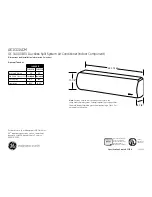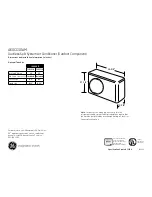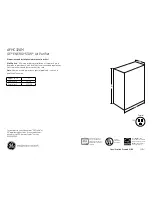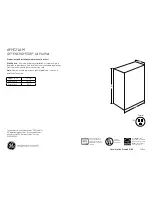
E/0618/35A/58
10.5
Hazards arising in case of fire
There are no direct dangers.
The refrigerant gas, in the presence of flames, generates toxic and corrosive substances.
The way to prevent this risk, in view of the relatively small quantities of refrigerant contained in
the machine, is to position the unit in adequately ventilated rooms.
10.6
Toxic substances
When the machine is not installed in a well-ventilated or suitably large room and there is a
substantial leak of refrigerant then the room should be ventilated and personnel should be sent
out from the room.
10.7
Hazardous fluids
The unit does not contain any fluids which are hazardous to people.
During operation, the A/C unit produces condensate which is drained into the environment if it is
not dissipated by the dissipator. It is recommended to drain this fluid adequately by condensate
lines so as to prevent possible hazards to people in the area.
11.
Uninstalling and disposal of the unit
This unit contains refrigerant gas and a small quantity of lubricants (esters) in the
compressor. These components are pollutants for the environment and must not
be dispersed.
Disassembling operations on this unit must only be done by experts.
Before starting to dismantle the unit check that it has been disconnected from
electric power supply.
This unit must be disassembled by authorised organisations.
The following are the instructions for proper disposal of the unit during the various phases of its
life. For further clarification or additional information, please contact [email protected].
To ensure proper and safe disposal activities, operator must equip themselves with
the necessary PPE including: anti-cut gloves, oil resistant gloves, heat resistant
gloves, safety footwear, safety eye-wear against liquid and gas splashes.
The context in which the unit is located may require the use of additional PPE, thus
it is mandatory to inquire with the relevant staff of the area before starting
operation.
Once the materials have been separated as shown below, they should be assigned EWC codes
and then sent for disposal in accordance with the national legislation. Disposal related to the unit
purchased occurs in three stages:
Summary of Contents for Tel-Air-2 Series
Page 2: ......
Page 27: ...E 0618 35A 27 TLD F 40 TLD F 60 TLD F 80 TLD F 40 TLD F 80...
Page 28: ...E 0618 35A 28 TLD F 90 TLD F A2 TLD F A4 TLD F 90 TLD F A4...
Page 29: ...E 0618 35A 29...
Page 30: ...E 0618 35A 30...
Page 31: ...E 0618 35A 31...
Page 37: ...E 0618 35A 37 Cut out TLF TLD 40 60 EXTERNAL OUTSIDE...
Page 38: ...E 0618 35A 38 Cut out FLOOR TLD 40 60 FRONT SIDE REAR SIDE...
Page 39: ...E 0618 35A 39 Cut out TLU 40 60 EXTERNAL OUTSIDE...
Page 40: ...E 0618 35A 40 Cut out TLF TLD 80 A4 EXTERNAL OUTSIDE...
Page 41: ...E 0618 35A 41 Cut out FLOOR TLD 80 A4 FRONT SIDE REAR SIDE...
Page 42: ...E 0618 35A 42 Cut out TLU 80 A4 EXTERNAL OUTSIDE...
Page 61: ...E 0618 35A 61...
Page 62: ...E 0618 35A 62...
Page 63: ...E 0618 35A 63...
Page 64: ...E 0618 35A 64...
Page 72: ......

































